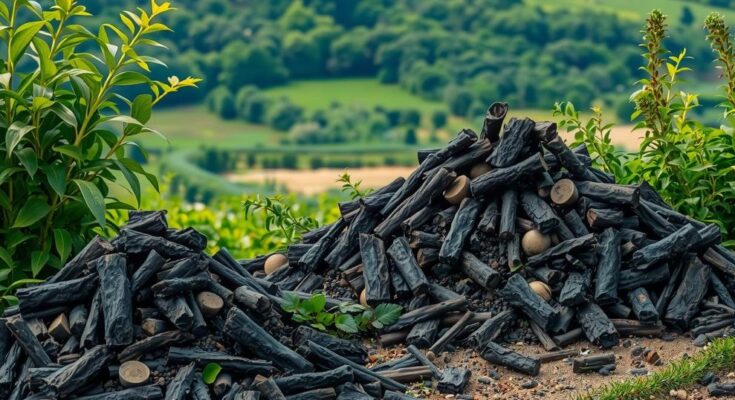Charcoal sales in Tanzania rose to Sh5.73 billion, doubling from last year, despite a push for clean energy. The BoT report, noting a seasonal decline, emphasizes the need for awareness campaigns and improved energy access. The South-Eastern zone leads in sales, while rural areas face challenges in clean energy adoption. Experts advocate for lower gas pricing to incentivize transition.
Charcoal sales in Tanzania have seen a significant increase, reaching Sh5.73 billion as per the Bank of Tanzania’s (BoT) latest report. This figure represents a 100 percent rise from Sh2.94 billion in the same period last year. Despite ongoing campaigns to promote clean cooking energy, this surge indicates a persistent demand for charcoal in Tanzanian households, with a noted 39.30 percent decline in sales compared to the previous quarter, suggesting seasonal consumption fluctuations.
In efforts to promote a transition to clean energy, stakeholders have proposed public awareness campaigns emphasizing alternative energy sources, addressing cost concerns, and enhancing accessibility. Tanzania aims for 80 percent of its population to utilize clean cooking energy by 2034, focusing on the adoption of cooking gas. Distribution of gas cylinders to households is among the initiatives to facilitate this shift from charcoal and firewood.
Regionally, the South-Eastern zone led charcoal sales at Sh3.68 billion, representing 64.22 percent of total national sales. The Central region followed with Sh856.6 million, and the Northern region had Sh775.6 million. In contrast, the Lake Zone and Dar es Salaam recorded the lowest sales of Sh410.9 million and Sh12.6 million, respectively.
Dr. Lutengano Mwinuka from the University of Dodoma highlighted the limitations of clean energy access in rural areas. He advocated for promoting energy-efficient stoves and conducting awareness campaigns to encourage the use of alternative sources such as biomass. Additionally, he emphasized the need to create tailored clean energy initiatives that consider the varied challenges faced by urban and rural communities.
Dr. Donald Mmari of Repoa expressed concern over the ineffectiveness of awareness campaigns in reaching rural populations. He stressed the necessity of ensuring that alternative energy is both accessible and affordable alongside promoting its benefits.
Economist Prof. Aurelia Kamuzora of Mzumbe University noted that gas remains unaffordable for many Tanzanians. She suggested conducting research to evaluate the financial capacity of the population to ensure gas pricing aligns with economic realities. Until charcoal becomes more expensive compared to gas, the transition may remain slow.
To encourage a shift towards clean energy, Dr. Mmari urged efforts to reduce costs related to alternative energy sources, focusing on transportation and production expenses. Dr. Mwinuka additionally recommended revisiting gas pricing policies to incentivize wider adoption by lowering costs and adjusting tax policies for improved affordability.
In conclusion, the surge in charcoal sales in Tanzania illustrates the enduring reliance on this fuel despite efforts to promote clean cooking energy. Stakeholders are advocating for improved public awareness, cost reduction, and increased accessibility to cleaner alternatives. The challenges faced in rural areas necessitate tailored strategies to facilitate the transition. Addressing the affordability of cooking gas through policy adjustments may be crucial in achieving the national goal of substantial clean energy adoption by 2034.
Original Source: www.thecitizen.co.tz




